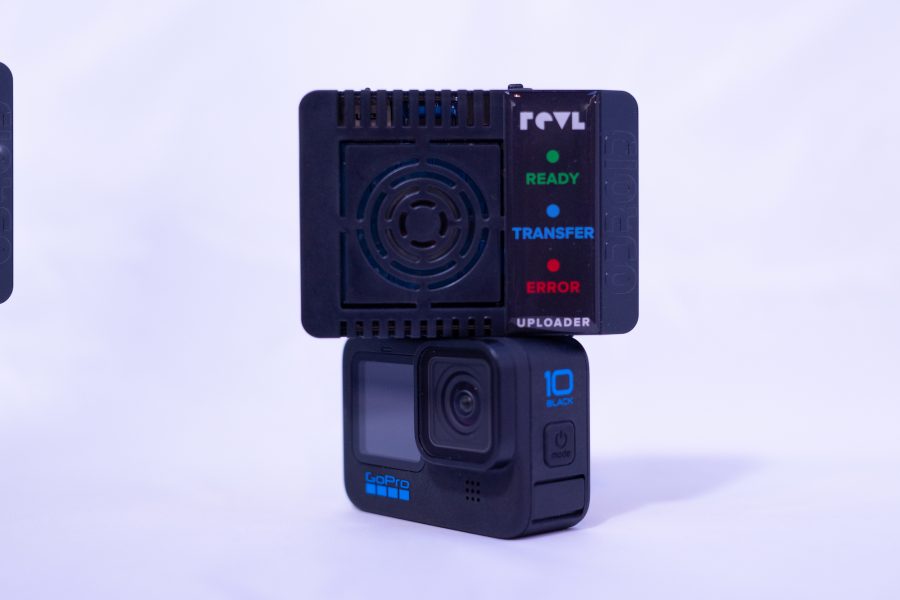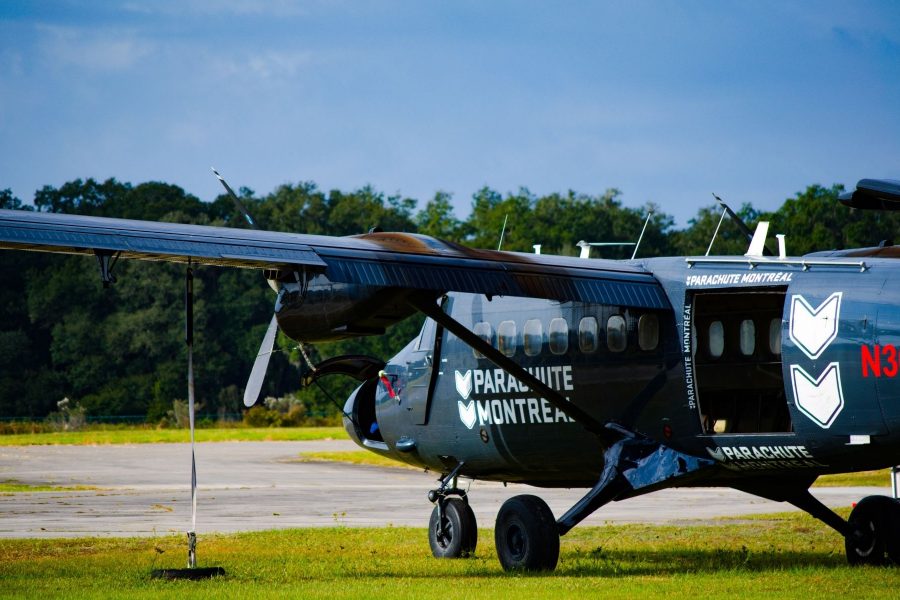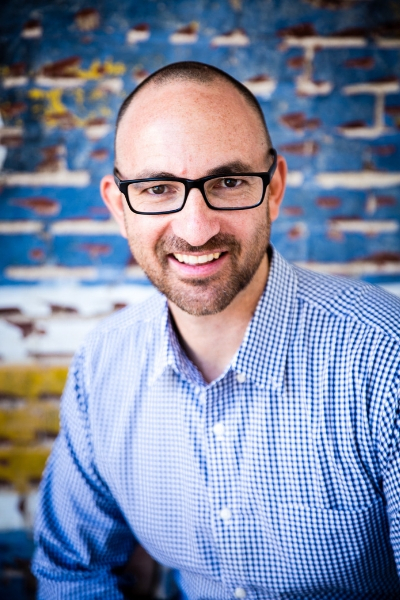
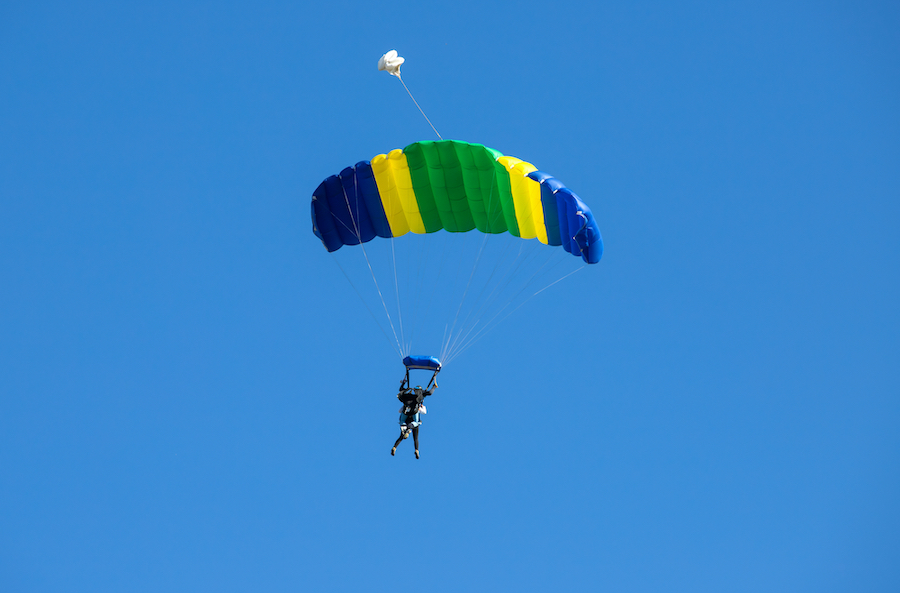
On a cold, blue sky day in 2009, I looked towards the northwest corner of the dropzone and could see the last of five tandems flying without any discernible pattern away from the airport. It was strange as the spot was good and the other four tandems on the load had landed near the peas. I radioed my DZO that we were going to have an off landing and he should give chase in the DZ van. At about 600 feet, the tandem slowly started turning right towards the apron of the runway where it eventually put down.
As I began to walk back to the hangar, I felt gratified having had a busy day despite the cold. Then the call over the radio: “Coach, you may want to come down here.” It seemed like a strange request, so I hopped in my burnt orange Honda Element and wasted no time driving to the corner of the airport about a mile away.
What I arrived to was a moment I’ll never forget. My DZO Danny Smith and the tandem passenger named Daniel Pharr (I’ve never forgotten his name) stood in silence. Our tandem instructor and friend, Chip Steele lay peacefully on the ground in his black Strong Enterprises jumpsuit. He was deceased and the three of us stood there in shock not quite knowing what to do next.
Pharr would eventually recount his story to us and later, the entire world on ABC’s Good Morning America with Robin Roberts. The free fall was uneventful and after a safe deployment the two chatted as Steele adjusted the harness. Pharr said, “It’s surprising how quiet it is”, to which Chip replied, “Welcome to my world.” Pharr would go on to make a few more comments about the experience to which Chip never replied. As it turns out, Chip had a heart attack and immediately passed away. After about 30 seconds of silence, Pharr could tell something was off and quickly realized that his tandem instructor was no longer responsive. Minutes went by in silence.
As the pair continued to descend, Pharr remembered the training from the class an hour earlier and he worked to reach the right toggle above him and very slowly applied pressure by pulling down. As if in slow motion, the canopy began to turn right and move off its original course towards dense trees. With no flare, the pair landed hard in the low-lying apron of runway 17. What’s most remarkable is what Pharr did next. Pharr had the presence of mind to detach himself from his instructor and immediately begin mouth-to-mouth resuscitation as he had been trained. Unfortunately, the time between Chip’s passing and this moment was too long, and he was gone.
As we would later learn, Pharr was no normal tandem student. This young 23 year old worked as an intelligence officer at Fort Gordon which is home to the Signal Corps – the communications nerve center for the US Army. This would explain why days later, no one in the media or from our dropzone could get in touch with Pharr.
The Media Takes Hold
Within an hour of calling the county coroner, the DZ received its first inquiry about the incident. I couldn’t believe that the story was already out there especially as we hadn’t contacted emergency responders. Usually, the media listens to police scanners in the area, but being that we made a phone call, I hadn’t anticipated that the media would be tipped off quite so quickly.
I didn’t have time to grieve, because I was now in business mode to try and protect our brand from the media who I knew would eat this story up because the details were sensational which meant attention by the general public which ultimately equates to advertising dollars. The media didn’t eat this up – they gobbled it with a ravenous appetite that I couldn’t have imagined.
Going Global
The first call from the media came into the dropzone on Saturday afternoon at 4:30pm. By mid-morning on Sunday, media trucks from Charlotte had started to arrive seeking an interview. By the time I awoke on Monday morning, the Google Alerts referencing our dropzone (Skydive Carolina) were pinging my inbox from every state in the country. Calls were coming in from the major networks in New York asking for comment and looking for information to speak with the now famous Daniel Pharr, the heroic tandem student. It was a frenzy.

By Monday afternoon Google Alerts highlighted Skydive Carolina being mentioned in New Zealand, Australia, India, the Philippines, Japan, countries throughout Europe, and countless others. The tragedy at our small dropzone located at a tiny airport in a tiny town in the middle of nowhere South Carolina was being talked about by news agencies from around the planet within 36 hours of Chip’s passing. This story hadn’t gone viral – it had gone global.
By midweek, the major networks in New York were jockeying for exclusivity to interview Daniel Pharr and to have him share his story. I received calls from CBS, NBC, and ABC with offers to come to New York and talk about what happened. I didn’t think that participating would bring about anything more positive for Chip, the sport, or our business. The media had their narrative and they were going to run with it. I’ve learned that adding comments to any negative skydiving story only helps keep it in the media for longer, and so I declined.
In the end, ABC reached Daniel Pharr (thanks to his commanding officer) and promised to tell the story tastefully.
Lessons Learned
This event served as my crash course in media relations and formulated how I would respond to the media when serious injuries or fatalities occurred. What I learned is that the media is predictable and if you know what the media will do, then you can stay one step ahead of them and not be caught off guard. This is the cornerstone of good public relations.
If you’re a DZO or DZM then it’s imperative that you and your staff understand the rules of engagement with the media during a crisis. There are many examples of well-intentioned dropzone operators who have caused harm to their brand based on how they interact with the media.
My goal is to educate DZO’s to be prepared when things go wrong. Click here to learn the details of how to manage the media during a crisis. Here is a link to a Master Checklist to help gain clarity of what needs to be done in a crisis.
James La Barrie is a former DZM at Skydive Carolina. James has consulted with more than 30 dropzones throughout the US and Australia and has been a featured speaker for the Parachute Industry Association (PIA), USPA, British Skydiving and the Australia Parachute Federation. If you would like James to come to your DZ to teach your staff on media crisis management, contact James here.

General
Skydiving PR: From Local to Global News
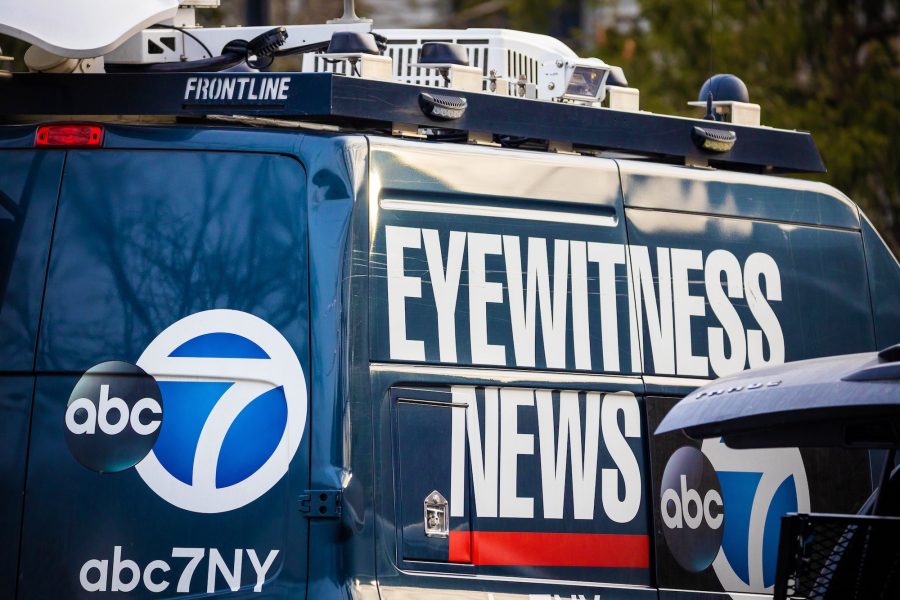
General
Managing the Media During a Crisis
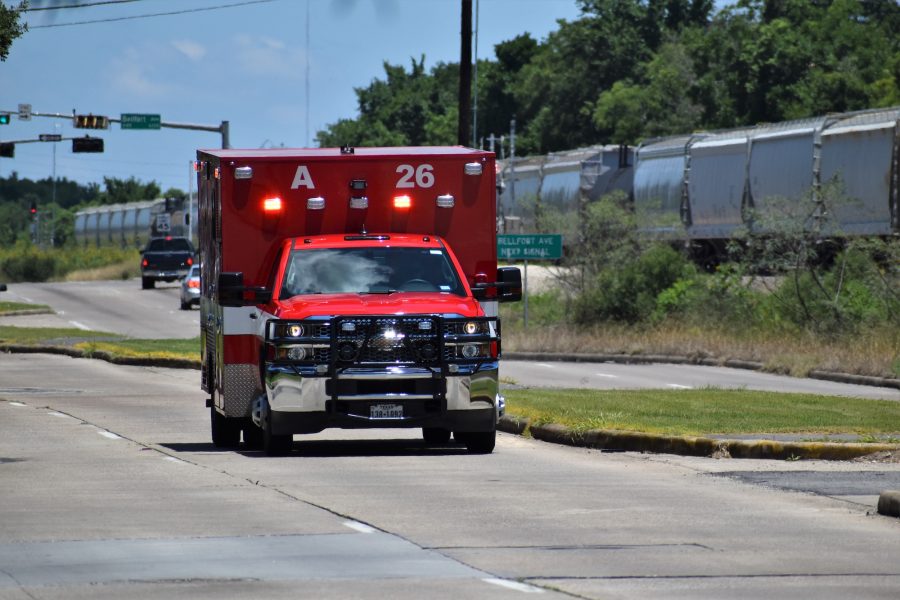
General
RESCUE GONE WRONG
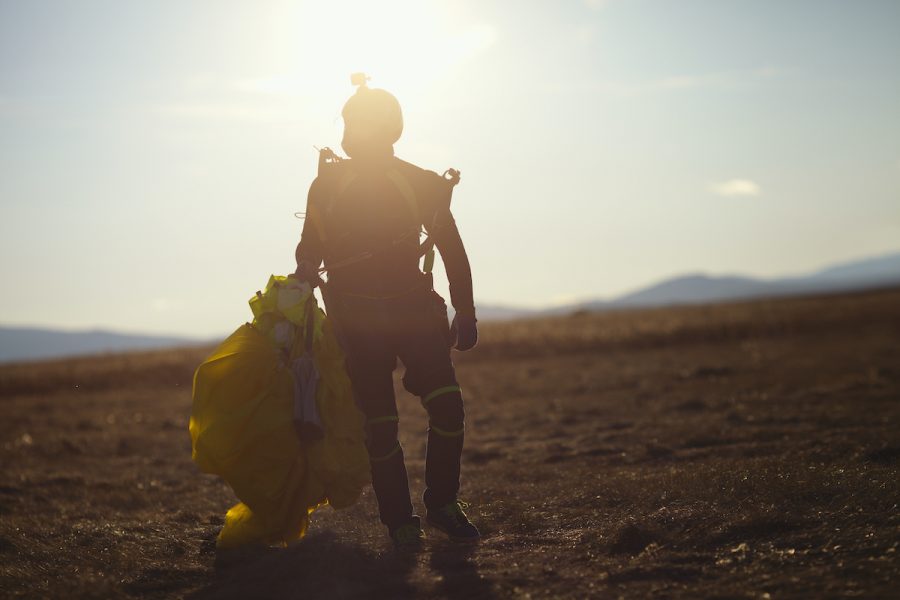
General
Solving the staffing crisis in skydiving


